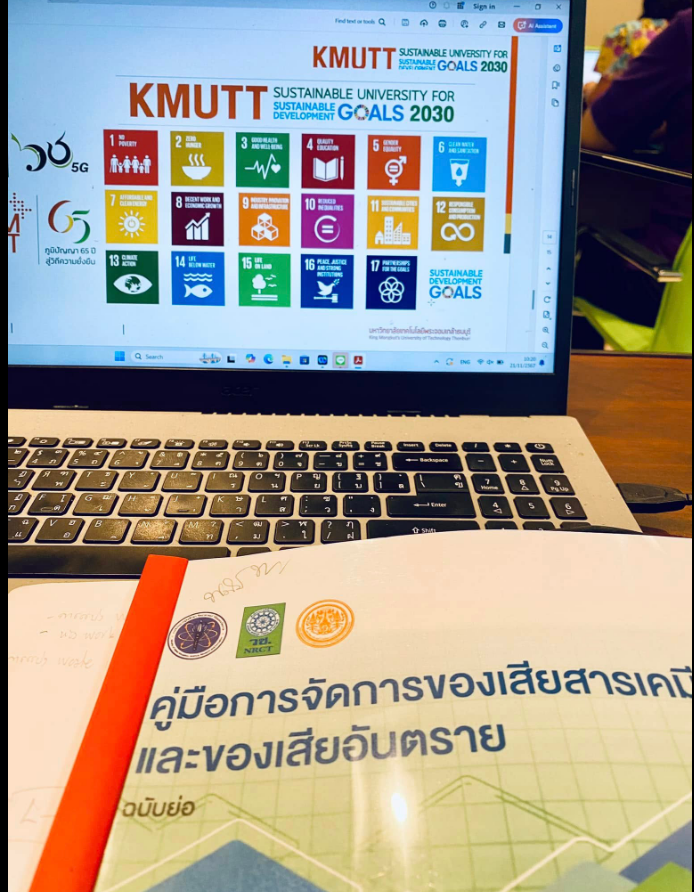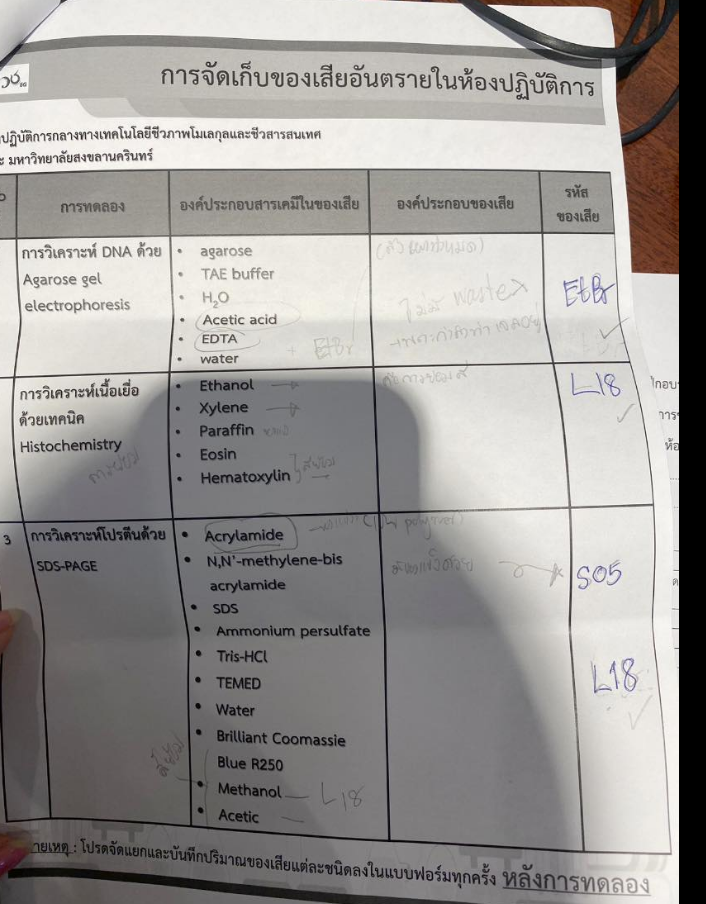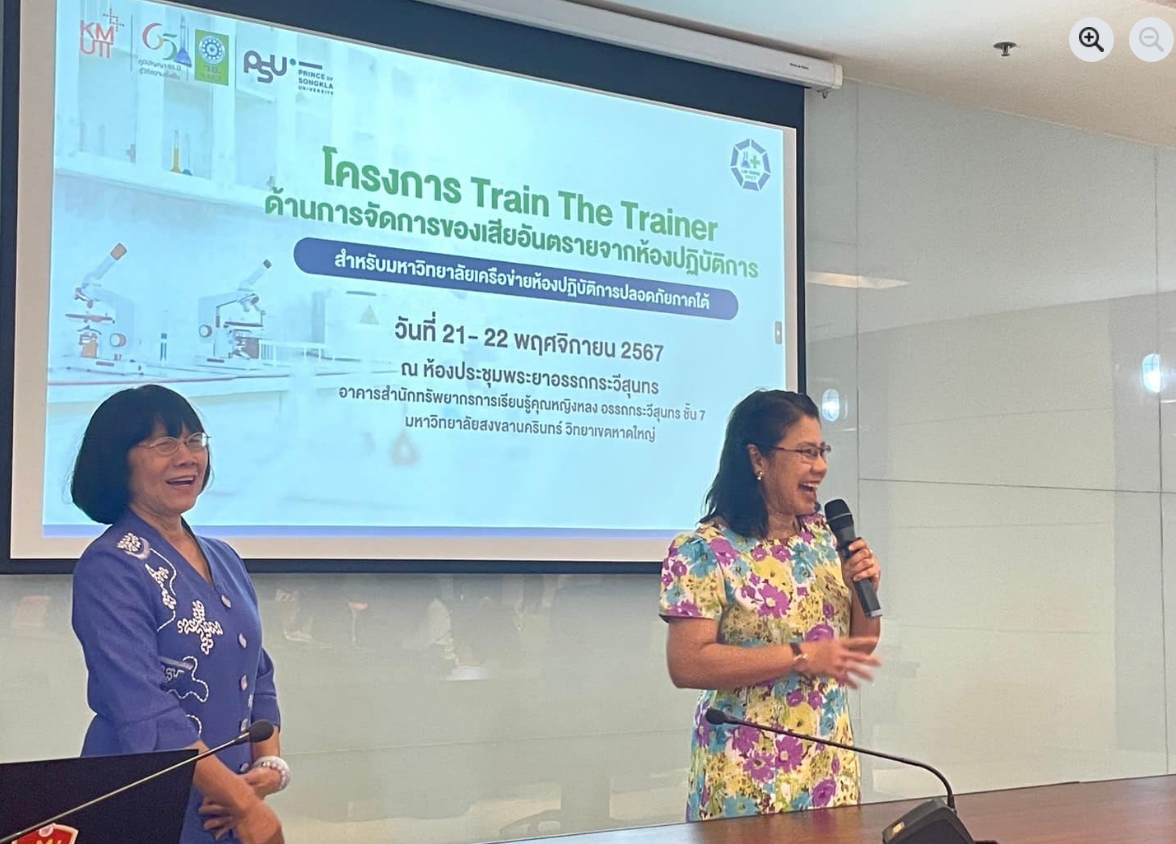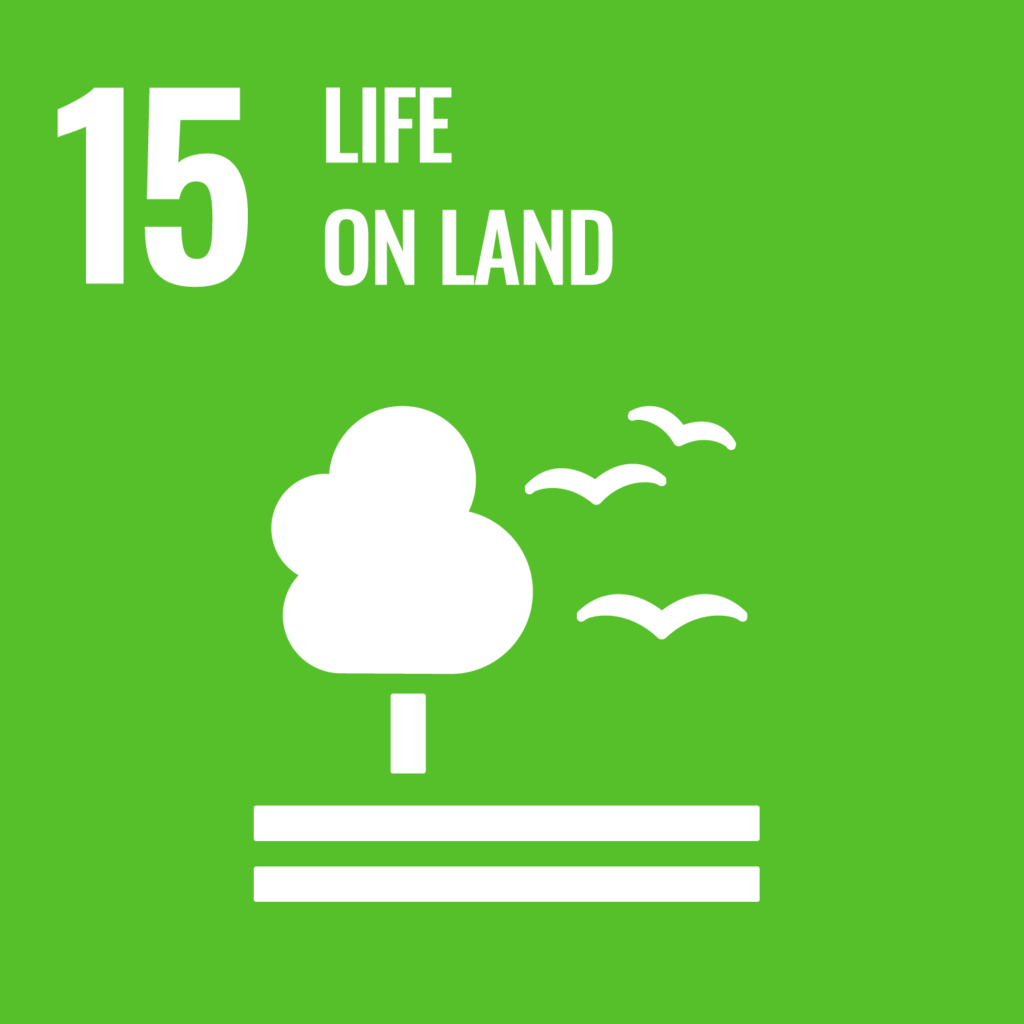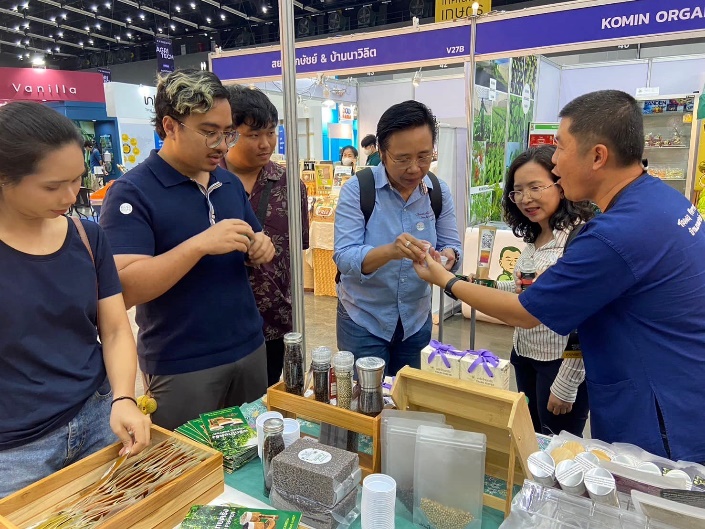Reporters: Asst.Prof.Dr. Prapot Maliwan
Assoc.Prof.Dr. Pornsil Seephueak
Asst.Prof.Dr. Nion Chirapongsathonkul
Asst.Prof.Dr. Worawitoo Meesook
Evidence Date: during 2024 Jan-Dec
Details: 15.4.3
The Laboratory of Plant Pathology, under the supervision of Associate Professor Dr. Pornsil Seephueak, Faculty of Agriculture, Rajamangala University of Technology Srivijaya, Thung Yai District, Nakhon Si Thammarat, operates in accordance with the National Research Council of Thailand (NRCT) chemical safety standards. The laboratory has successfully undergone peer evaluation, emphasizing responsible chemical waste management as a key component of safety and sustainability. This practice directly supports SDG 15: Life on Land, by preventing hazardous substances from contaminating soil, plants, and ecosystems surrounding the university. Through rigorous control and proper waste segregation, the laboratory reduces environmental pollution and promotes the sustainable use of terrestrial resources.
In alignment with the principles of SDG 15, the laboratory prioritizes eco-friendly practices in handling hazardous waste generated during research and innovation processes. The head of the laboratory and staff members have participated in the “Train the Trainer” program on chemical safety management to strengthen their knowledge and skills in sustainable laboratory operations. These training initiatives ensure that all personnel are competent in waste reduction, recycling, and proper disposal methods, minimizing environmental risks. The integration of such safety practices in research not only enhances laboratory efficiency but also safeguards biodiversity by preventing chemical leakage into terrestrial and aquatic ecosystems.
Furthermore, the laboratory has adopted innovative approaches by learning from model laboratories at Prince of Songkla University to improve its waste management system. The implementation of new technologies, such as safe chemical storage systems and waste treatment procedures, reflects a strong commitment to sustainable innovation. These efforts contribute to the conservation and restoration of terrestrial ecosystems as emphasized in SDG 15, ensuring that scientific research is conducted responsibly and harmoniously with nature. By fostering a culture of environmental stewardship within research laboratories, this initiative serves as a model for sustainable scientific development and long-term ecological balance.
